|
|
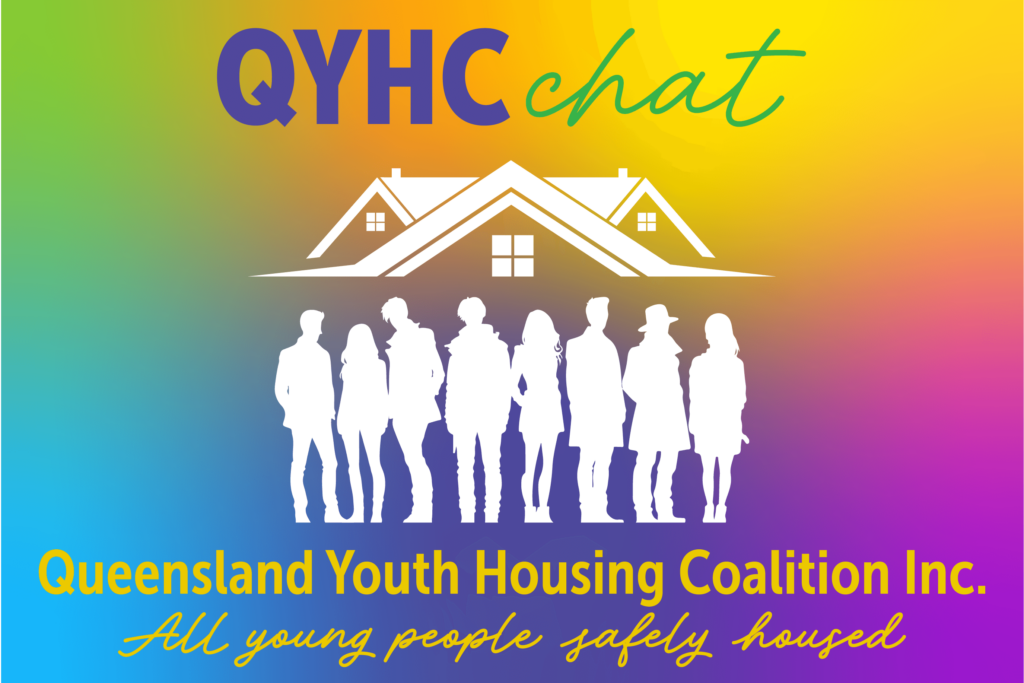
|
QYHC Chat May 2024
|
|
Platform 1225 Conference
Building a solid platform for young people aged 12 to 25!
|
The usual good will and spirit of generosity returned with the youth sector at Platform 1225, 2024. A round up of presenters sharing expertise - academic, lived and practice based ensured no one could hear a pin drop.
|
|
The truly respectful scene was set in large by Aunty Brenda Matthews who shared her story and inspired all in the room with messages of healing, personal responsibility, leading and sharing. Her story is that of the nation’s – one of trauma and resilience; and a journey to recovery, one that begins with truth, telling the truth and working through the pain of the truth to understanding and a reflection of the core.
|
|
|
|
|
|
|
|
|
|
May is DFV Prevention Month
|
|
|

|
This annual initiative aims to raise awareness of domestic and family violence and coercive control, highlight the support services available, and send a clear message that violence in our communities will not be tolerated.
|
It doesn’t need to be May for us to realise the heartbreak of DFV. Each May the murders seem more prolific though, an additional sting during the month dedicated to its prevention.
|
Several news stories captured horrible examples and the need for change – in how we think, behave and respond to disrespect, red flags and DFV incidents.
|
|

|
Through focusing on preventing violence before it starts, Queensland’s Plan for the Primary Prevention of Violence Against Women 2024-2028 aims to address and challenge deep-seated beliefs, attitudes and behaviours about gender and violence against women. The Plan provides a blueprint for government, working in partnership with the broader community, to develop and implement initiatives to end domestic, family and sexual violence against women in Queensland.
Click here to learn more about the Plan. Click here for more information on DFV.
|
|
New home for domestic and family violence support service
|
|
The Centre for Women & Co. has secured a new home in Logan thanks to the support of a $3 million grant from the Queensland Government. This new building is in a central location, close to public transport to make it easier for more women and children who are escaping domestic, family and sexual violence to access crucial support such as counselling, crisis intervention and safety planning. The Centre also provides court support, women’s health services, community education and women’s advocacy. Work is underway to ensure the new facility will open its doors to the community in mid-June.
|
|
|
|
New laws to improve justice system response to domestic, family and sexual violence
|
|
In response to Women’s Safety and Justice Taskforce recommendations, the Queensland Government has introduced new laws to protect children and to improve how courts deal with sexual, domestic and family violence matters. The legislation creates the new ‘Position of Authority Offence’ to protect children aged 16 or 17, from sexual interactions with adults who have them under their care, supervision or authority, such as teachers and health practitioners. It will improve the court experience for victim-survivors of sexual, domestic and family violence, when they give evidence in court. Proposed changes would allow for expert evidence to be given in criminal sexual offence trials to dispel myths about how victim-survivors might be expected to behave at the time of or after the offence has been committed. The maximum duration of non-contact orders, made by a court during sentencing, requiring an offender not to contact a victim or another person or not to go to particular places, will also be extended from two to five years. A review of the effectiveness of these laws will occur every 5 years.
|
|
|
|
Long awaited National reforms to the Family Law Act, came into effect this month
|
The Family Law Amendment Act 2023 reforms remove the ‘presumption of equal shared parental responsibility’, which has often been misunderstood as meaning parents have a right to equal shared time. This has allowed some parents to be coerced into agreeing to equal time arrangements that are unsafe. This amendment makes it clear that all decisions about parenting arrangements should be based on what arrangements best meet the needs of the individual child.
|
|
The reforms also include a broader definition of ‘member of the family’ that is inclusive of Aboriginal and Torres Strait Islander concepts of family and kinship as well as the court being able to take into account the rights of Aboriginal and Torres Strait Islander children to be able to enjoy their culture.
|
|

|
|
|
|
|
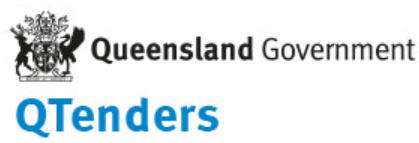
|
DFV opportunity - embedded workers for youth services
|
Domestic and Family Violence Youth Using Violence Trial across Queensland regions
|
|
This trial involves embedding a DFV worker within a youth service to develop, implement and test a program for working with young males who use violence against their intimate partners or family members, and to promote DFV proficient practice across the youth service.
|
|
Cairns & Far North Queensland
Mount Isa & North West Region
The Central West
South West & Darling Downs
Townsville
Mackay Whitsunday Region
Rockhampton
Gladstone
Wide Bay Burnett
South East Queensland
|
A non-mandatory briefing will be held via Teams on Tuesday 4 June 2024 from 2.30 - 3.30pm AEST. Those wishing to attend the briefing must register via procurement@justice.qld.gov.au by no later than 11am AEST Tuesday 4 June 2024. A meeting link shall be provided upon registration confirmation.
|
|
You can read more here. Closes 24th June at 2pm.
|
|
|
|
|
National Reconciliation Week
|
|
|
The National Reconciliation Week theme for 2024, Now More Than Ever, is a reminder to all of us that no matter what, the fight for justice and the rights of Aboriginal and Torres Strait Islander people will – and must – continue. Now more than ever, we need to tackle the unfinished business of reconciliation.
|
Together, we must build on the work of the past and create a legacy for the future.
|
|
National Reconciliation Week – 27 May to 3 June every year – is a time for all Australians to learn about our shared histories, cultures, and achievements, and to recommit ourselves to reconciliation and the fight for First Nations justice in Australia
|
|

|
|
Learn more about the history of National Reconciliation Week here.
|
|
Find NRW 2024 posters and resources here.
|
|
|
|
|
|

|
United National Voice for
Youth Homelessness
|
Great news in the federal budget for this National campaign committed to ensuring youth homelessness is a focus across our country.
|
The decision to allocate $1 billion from the National Housing Infrastructure Facility (NHIF) to young people with no home and women and their children escaping violence is a welcome one. Targeting the NHIF to young people has been a major campaign ask and we welcome the decision. Much detail remains to be unpacked such as what the housing targets look like and how support needs and the rental gap for youth payments will be addressed.
|
The new National Agreement on Social Housing and Homelessness (NASHH) needs to prioritise children and young people with no home and ensure that dedicated tenancies for young people are linked to support services and payments to cover the rental gap for providers.
|
|
#FixHousingForYoungPeople #HomeTime.
|
|
|
|

|
YANQ Youth Work
Community of Practice 2024
|
|
This is a unique opportunity for youth workers to join a state-wide online Community of Practice (CoP). This CoP will operate as a group of peers who share a concern or passion for their work with young people, and a thirst for learning. All participants will be committed to working and learning about youth work within a context of equity, respect, anti-racist and anti-oppressive practices. “Sharing knowledge, learning new skills and perspectives. Getting a deeper understanding of systemic impacts to practice. Reconnecting with like-minded peers that is supportive and developmental”. 2023 CoP participant
|
Expert guest speakers will be supported by a highly experienced support team drawing on practice-based, theoretically informed knowledge, and experienced youth workers who are currently in positions which bring them into contact with vulnerable young people.
|
|
CoP will be held: June 11th from 10am - 12 noon.
|
|
Please register your interest here.
|
|
Homes for Queenslanders Latest
|
Under the Homes for Queenslanders Plan, the Queensland Government has passed new rental law reforms. These include that all forms of rent bidding are banned, and property owners will only be able to increase rents once per year. These reforms will also enable the government to develop a framework for parties to agree on installing modifications in rental properties, a Code of Conduct for the rental sector and a Portable Bond Scheme. The government will undertake consultation with the sector to develop these schemes as they aim to make renting fairer for Queenslanders.
|
|
|
|

|
Join in Queensland Day Celebrations!
- host an activity to raise awareness of Queensland Day and encourage celebrations on or around 6 June
- host an event such as a morning or afternoon tea, sports day or Queensland-inspired quiz night on or around Queensland Day in the workplace, school or home
- attend a Queensland Day Sponsorship event between 1-9 June 2024
- register public events or promotions via the online Queensland Day Calendar
- download the online resources available via the Queensland Day website, including Queensland-themed quizzes, games, photo props and novelty decorations
- share a photo or video of what you love about Queensland on Facebook or Instagram and include #MaroonIt for your chance to win tickets and vouchers to great Queensland experiences
|

|
|
|
|
|
REPORTS, ARTICLES AND PUBLICATIONS
|
|
|
Early Intervention Report
May, 2024
|

|
It is widely accepted that investing in early childhood helps build the foundations of a healthy, productive, and equitable society.
|
Building upon science presented in the two previous working papers from the National Scientific Council on the Developing Child (Connecting the Brain to the Rest of the Body: Early Childhood Development and Lifelong Health Are Deeply Intertwined and Place Matters: The Environment We Create Shapes the Foundations of Healthy Development), this paper examines two types of variation. The most commonly addressed type refers to differences between demographic groups (e.g., income, parent education, race/ethnicity), which are heavily influenced by structural inequities. The second, which science tells us needs increased attention, refers to individual variation within and across groups, and it is explained by how the effects of a variety of experiences are influenced by each child’s unique genetic makeup and the timing of the exposure, beginning before birth.
|
This paper calls for a significant shift in how we design, implement, and evaluate policies and programs. It explains how expecting individual variation in effectiveness, and planning for flexible implementation, can help avoid false stereotypes based on income or race and is likely to achieve larger impacts for all children and thus generate greater returns on investment for society.
|
|
Read Working Paper 17 here.
|
|
|
|
Stronger Starts. Brighter Futures May, 2024
|

|
This research examines the early development trajectories of children from CALD backgrounds in Australia by exploring the existing evidence base and analysing data from the Australian Early Development Census, conducted every three years. The analysis includes national data along with a breakdown for each of the three most culturally diverse jurisdictions: New South Wales, Queensland and Victoria. The research found that multicultural children in Australia are missing out on early childhood education and early intervention programs resulting in them being more likely to be developmentally vulnerable when starting school, with impacts on their school learning and repercussions in later life.
|
|
Read the full report here.
|
|
|
|
Want to know what young people thought of the Federal Budget?
|

|
Young people reported being interested in the budget as it affects their future. Among their answers were some common areas of concern:
|
- Faster transition away from fossil fuels
- Greater Investment in clean energy
- Relief at the student debt reduction
- Improving access to mental health services
- Lower the cost of medicine
|
All the young people we talked to said they wanted to be consulted more on things that concerned them and be involved in the solutions.
|
|
New practice paper: Does labelling racism as bullying perpetuate a colour-blind approach when working with culturally diverse families?
|

|
|
This paper explores the complexities of racism, emphasising its distinction from bullying and highlighting the profound effects it has on marginalised communities. Practitioners who take a culturally curious approach and practise cultural humility can help children and their families to challenge some of the unhelpful assumptions caused by bullying and racism. View practice paper here.
|
|
|
|
AIHW Specialist Homelessness Services: monthly data
|

|
|
|
|
|

|
National social housing survey 2023
|
In 2023, satisfaction was high among social housing tenants (almost 3 in 4 tenants were satisfied), but there were differences between housing programs and states and territories, with most of the variation in satisfaction due to the structural condition of dwellings. Nearly all tenants reported feeling more settled and being able to manage their rent better as benefits of living in social housing.
|
|
Updated Child Protection
Australia Report
|
Child protection Australia 2021–22 consists of an initial report followed by 3 updates, each focussing on a specific area of interest in child protection systems. The latest being 7 May 2024: The final update, Pathways from out-of-home care, presents data on children leaving the out-of-home care system. The data also include the Permanency Outcomes Performance Framework (POPF) indicators and the National Standards for Out-of-Home Care (NOOHCS) indicators. Read more here.
|
|
|
|
Report into Child Maltreatment
and mental ill health
|
This study provides the first estimates of the causal contribution of child maltreatment to mental health in Australia. Results highlight the urgency of preventing child maltreatment to reduce the population prevalence and burden of mental disorders. Read the report here.
|
|
|
|
AHURI
|

|
|
The research proposes sharing of best-practice examples of tenant participation and program practice guidelines between housing organisations and across sectors through a new Australian Housing Clearinghouse model. Read the report here.
|
|

|
|
This research examines the organisational and resource implications of transitioning from ‘output-based’ to ‘outcomes-based’ funding arrangements for providing social housing in Australia. It explores relevant housing policy contexts, reviewing opportunities and key policy barriers for this reform goal. Read the report here. Related news article here.
|
|
|
|
|
|
And in case you missed last month...
|
|
|
Anglicare’s Rental
Affordability Snapshot
|

|
The 2024 Rental Affordability Snapshot surveyed rental listings across Australia and found that affordability has crashed to record lows. Out of 45,115 rental listings, it was found that:
|
- 289 rentals (0.6%) were affordable for a person earning a full-time minimum wage
- 31 rentals (0.1%) were affordable for a person on the Disability Support Pension
- 3 rentals, (0%) all share houses, were affordable for a person on JobSeeker
- 0 rentals (0%) were affordable for a person on Youth Allowance.
|
Mission Australia Youth Survey
|

|
|
Read what young people had to say in 2023 and respond to the 2024 survey below.
|
|
Are you 15-19 years old? The 2024 Mission Australia Youth Survey is now open! Have your say here.
|
|
|
|
Economic Inclusion Report
|
To inform its approach, the Committee has drafted an Economic Inclusion Framework. The Framework provides a clear definition of economic inclusion and an outline of the broad problems that need to be addressed to reduce the economic exclusion that is very real for so many Australians. Read more here.
|
|
|
|
|
|
In The News
|
A snapshot of media coverage of matters impacting young people including homelessness and youth justice.
|
|
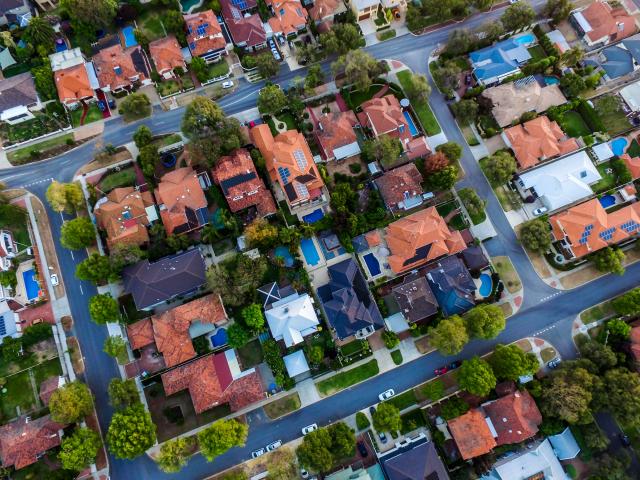
|
|
|
|
|
|
REGISTRATIONS ARE OPEN
|

|
|
|
|
JOIN THE CAMPAIGN!
|
|
|

|
Queensland locks up more children than any other state.
We lock up children for longer than any other place in the nation, and our detention rates have been going up over the past four years. By that measure, we should be the safest state in the country.
|
|
So why are we in the midst of a youth crime crisis?
|
Because imprisoning Queensland children does not teach them a lesson. It does not help them change their behaviour. It does not keep our communities safe, and it costs millions of dollars.
|
|
Tell Queensland Premier Steven Miles it's time for change by supporting the campaign here.
|
|
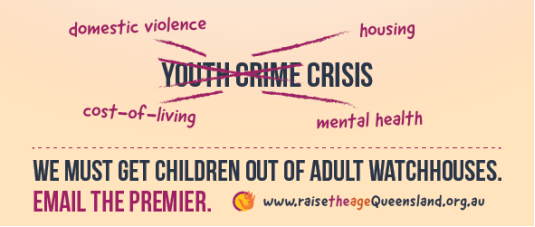
|
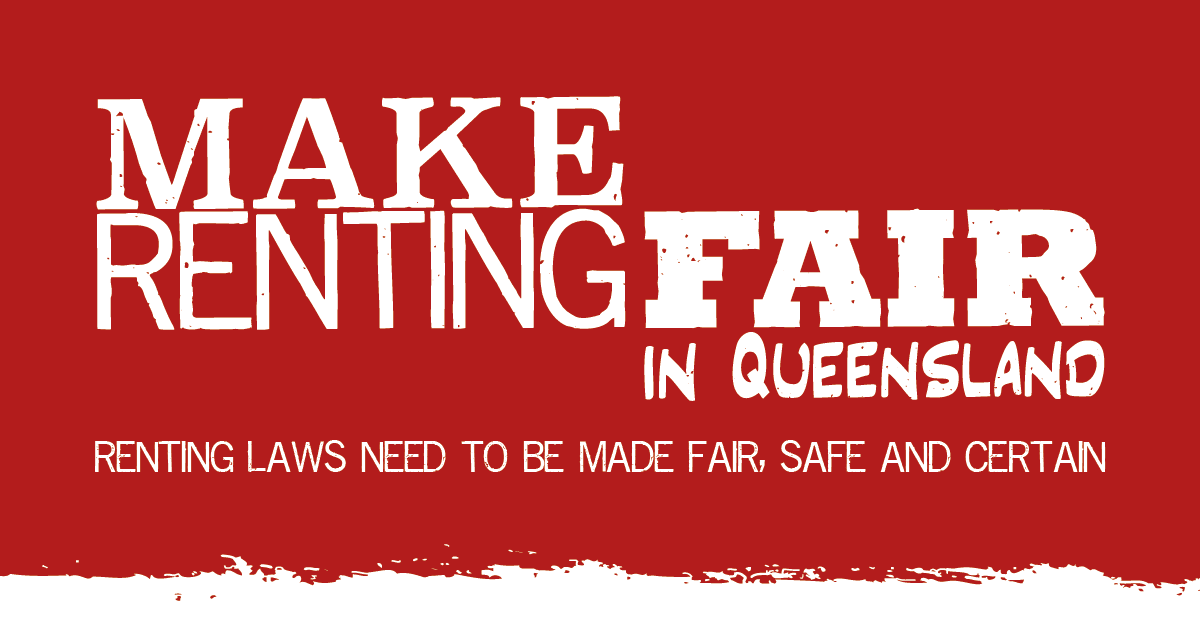
|
QYHC is a member of Make Renting Fair Queensland, led by Tenants Queensland, staunch advocates of rental reform in Queensland. Last week saw the proposed changes to tenancy laws passed. Also, in a separate Bill, improvements for residents of Manufactured Homes passed. Congratulations to the Queensland government, TQ, MRFQ and all involved in these changes.
|
There are significant improvements for Queensland renters in the package of reforms just passed and those which were made into law in October 2021.
|
Three outstanding issues will remain on the agenda of MRFQ and TQ:
|
- Limiting the amount that rents can rise
- Truly ending without ground notices to leave (by prohibiting the use of ‘end of a fixed term’)
- Energy efficiency minimum standards.
|
You can find out more about the campaign and become a supporter here.
|
|
|
|
|
|
|
|
|

